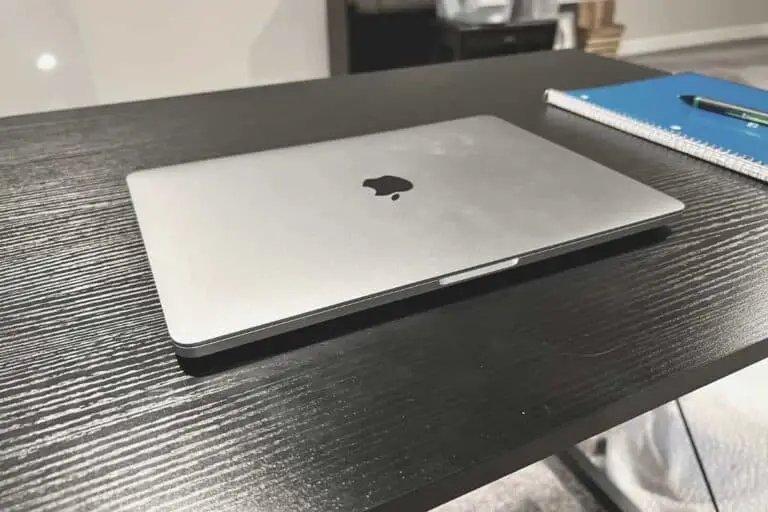Do College Campus Jobs Drug Test?
So you’re applying for jobs on campus, and you see “drug tests” pop up throughout your search. But what does it mean, and are drug tests required to be hired? Seeing those words may be nerve-wracking, especially with the rise in the popularity of recreational marijuana use.
Not all campus jobs require a drug test to work. Generally, the only campus jobs that have mandatory drug testing involve driving campus vehicles. If you have a job within your campus police department, you’ll likely have regular drug testing too.
In this article, I’ll go into more detail about campus jobs that require drug tests, how the tests work and how to pass the test. I’ll also provide information on what to do if you fail your drug test.

Campus Jobs That Require Drug Testing
Depending on your college campus, the drug use policy will differ. While some campuses are incredibly lenient, others have adopted a drug-free policy. Schools like Kent State University in Ohio and Skidmore College in New York are among campuses with zero tolerance for drug use on campus.
For those that are more lenient than these campuses, certain professions still require drug testing in compliance with federal standards. Professions like healthcare and transportation require drug testing specifically because your job makes you responsible for a large group of people.
Source: American Addiction Centers
For example, a campus bus driver who is under the influence of illicit substances is at high risk for putting everyone on the bus in danger. If you’re under the influence in the healthcare field, there’s potential to make fatal mistakes for the patients you’re around.
On the other hand, campus jobs at various restaurants or spirit wear stores are far less likely to do pre-employment testing or regular tests after hiring. Although campus customer service workers deal with many people, there isn’t nearly as much risk as in the previous two professions. Customer service jobs typically rely on the honor system when it comes to drug use.
How Do Drug Tests Work?
The most commonly used drug test for work testing is a Urine Drug Screen (UDS). UDS tests require a person to provide a sample of urine to be tested at a facility. While some sites have instant results, others may take up to one week.
UDS tests examine urine to test for illegal drugs and some prescription medications. These tests can also screen for alcohol, but alcohol is more commonly screened via a breathalyzer. Generally, UDS tests screen for:
- Amphetamines: This ingredient is active in medications that treat ADHD and narcolepsy. Adderall is one of the most common amphetamines used.
- Methamphetamines: This ingredient is also present in ADHD medication. It’s also found in crystal meth, a highly addictive substance.
- Benzodiazepines: These are commonly found in anxiety medication and are frequently referred to as “benzos.”
- Barbiturates: Barbiturates are found in seizure medication and are also highly addictive as they depress the nervous system.
- Marijuana: Marijuana is typically only tested in places where it isn’t legal for recreational use.
- Cocaine: Cocaine is a stimulant and is one of the most commonly looked for when drug testing.
- PCP: Also known as “angel dust,” PCP is a dissociative hallucinogenic drug.
- Methadone: Methadone is a narcotic that doctors prescribe for pain management. It’s highly addictive and is one of the most looked for substances in a drug test.
- Opioids: These narcotics are also highly addictive and, like methadone, are used for pain management.
Before taking a drug test for employment, it’s important to let your employer know what prescription drugs you need to take and the current dosage prescribed to you. Being open about this will let them know not to be worried if certain amounts of a drug are in your urine.
Taking a Drug Test
When taking a drug test, you’ll likely be required to do so in a sterile bathroom designed explicitly for urine drug tests. A doctor or nurse practitioner will give you a clean container to collect your urine sample.
All of your belongings will need to stay outside of the bathroom. Leaving your belongings outside the room prevents you from giving someone else’s sample instead of your own.
You’ll use a special cloth to wipe your genitals before giving your test. Wiping yourself ensures no other contaminants make it into your sample. You’ll have to provide at least 45 milliliters (1.52 ounces) of urine for your sample and secure the lid on the container before giving the sample to the administrator.
Both you and the administrator will need to have eyes on your sample until it’s been secured and ready for testing.
Getting Your Results
While some places give you instant results, others may take a few days or up to one week. The most common form of UDS is an immunoassay. Immunoassays measure how the body reacts to certain drugs rather than testing for the drugs themselves. The test has cut-off points for each drug tested and will display a positive or negative result.
Once an amount reaches a certain threshold, a positive result will show. Because of how the test works, you may get a positive result for a drug you haven’t taken. If this is the case, it’s essential to schedule a follow-up test as soon as possible.
Let your potential employer know the situation, and they will likely allow you one follow-up test before making their final decision.
Pre-Employment Drug Testing
Pre-employment drug testing is used as a stipulation before an employer can officially hire a person. The purpose of this test is to ensure that the new hire won’t put those who will be around them in potential danger while on the job.
According to the National Institute on Drug Abuse, those who use illegal substances are far more likely to exhibit dangerous behavior at work, miss work or be late more often than others, change jobs frequently, or be less productive while on the job.
Periodic or Annual Drug Tests
A periodic or annual drug test is usually required if you’re working in healthcare, law enforcement, or in a trade. If an employer requires routine drug testing, they will say so before hiring, and you’ll need to agree to these tests as a stipulation of working there. Employers can require periodic tests at consistent intervals throughout the year or as an annual requirement.
You may also be subject to random testing. You’ll be grouped with other employees on your campus job on a specific day in random testing. One group will be called for a test on test day, while the other groups won’t test on that day.
Reasonable Suspicion Drug Tests
Reasonable suspicion drug tests are used when your campus employer suspects you may be under the influence. For this test to be done, your employer needs to have evidence of or reasonable cause to suspect you of using drugs illegally.
If you need to take a reasonable suspicion drug test, you may not be allowed back to work until the test comes back negative.
Passing a Drug Test
The easiest way to pass a drug test is not to take any of the drugs to be tested. However, abstaining from the drugs tested for may not be feasible. Those with a disability covered until the Americans With Disabilities Act (ADA) may need to take medication that comes up in UDS tests.
If this is the case for you, you should let your potential employer know what medications your doctor prescribes you.
Although many workplaces are veering away from testing for marijuana, many others still do. If you use marijuana recreationally, there are a few things to keep in mind leading up to your urine test:
- Abstain from using marijuana around the time of your test. If you use it infrequently or less than twice per week, weed will stay in your system for 1-3 days. However, if you use it more often, marijuana can stay in your system anywhere between 7 and 21 days.
- Your body functions may work in your favor. The human body can absorb THC much quicker or slower than the average person depending on the person.
- Use low-THC marijuana near the test day. If you use low THC marijuana or cannabis, you’re far more likely to pass the test.
- Make sure you stay hydrated. The more hydrated your body is, the faster your body will absorb any THC present in your body.
What Happens if I Fail an Employment Drug Test?
If you fail your test, you have a few options. Most employers will allow for one re-test in the event of a faulty drug screen. You may also be exempt from certain positive results if you have a disability covered under the ADA.
Three consequences can happen if you happen to fail your test:
- You may get fired. If you already have the job, you may be fired if it isn’t the first test you failed. Many employers will give their employees a second chance rather than firing them on the spot. However, a failed test may result in you having to take a certain amount of time off work until you can pass a screen.
- You may not get the position. If your pre-employment screen came back positive, the employer would likely deny you the job. However, if the screen returned positive for a drug you know you didn’t take, they may allow you one re-test.
- You may be able to continue working under certain circumstances. If you’re undergoing addiction treatment, then the employer may give you a little bit of leeway.
Source: Nextep
Can You Still Get Hired if You Fail A Drug Test?
If you happen to fail your drug test, you may still get the job. However, your chances of being hired are significantly reduced if the test wasn’t faulty or you don’t have a disability that requires those medications.
Usually, employers will clearly state that hiring is contingent upon a negative drug screen. While this doesn’t necessarily mean you’ll be denied on the spot, it does give the employer the right to refuse you employment if you fail.
If they still allow you to work for them, you may be subject to periodic drug tests to ensure you’re not under the influence while on the job.
Know Your ADA Rights
If you have a disability that requires medication tested for in UDS tests, an employer cannot pass you over or fire you for “failing” a drug test for those medications. The Americans With Disabilities Act (ADA) prohibits employers from discriminating against people with disabilities.
While a positive drug test can generally help weed out those who may be less productive or a danger to the public, certain drugs are necessary treatment for disabilities. If an employer refuses to employ you solely because you failed the drug test and you live with a disability, you have the right to take them to court.
With that said, employers also have a right to ensure a drug and alcohol-free workplace. You’ll be protected from discrimination as long as you are only taking the prescribed amount by your doctor and you can be coherent and productive on the job.
Substance Abuse and Mental Health Services Administration
The Substance Abuse and Mental Health Services Administration, or SAMHSA, has a national helpline for anyone to call who may be struggling with drug addiction. The helpline is open 24/7 every day of the year and is available to English and Spanish speakers.
The helpline works with callers by referring them to specialists near them. If a caller is uninsured, the helpline will connect them with a state office to find assistance.
Parting Thoughts
Whether or not your college campus requires drug tests for various jobs varies depending on the school as well as the type of employment you’re looking for. When campus job searching, remember to look and see if specific jobs require pre-employment or periodic testing.
Prepare yourself ahead of time by abstaining from drug use and keeping hydrated. Know your rights under the ADA if applicable, and please call the Substance Abuse and Mental Health Services Administration (SAMHSA) helpline if you or someone you know is abusing drugs (1-800-662-HELP (4357)).






